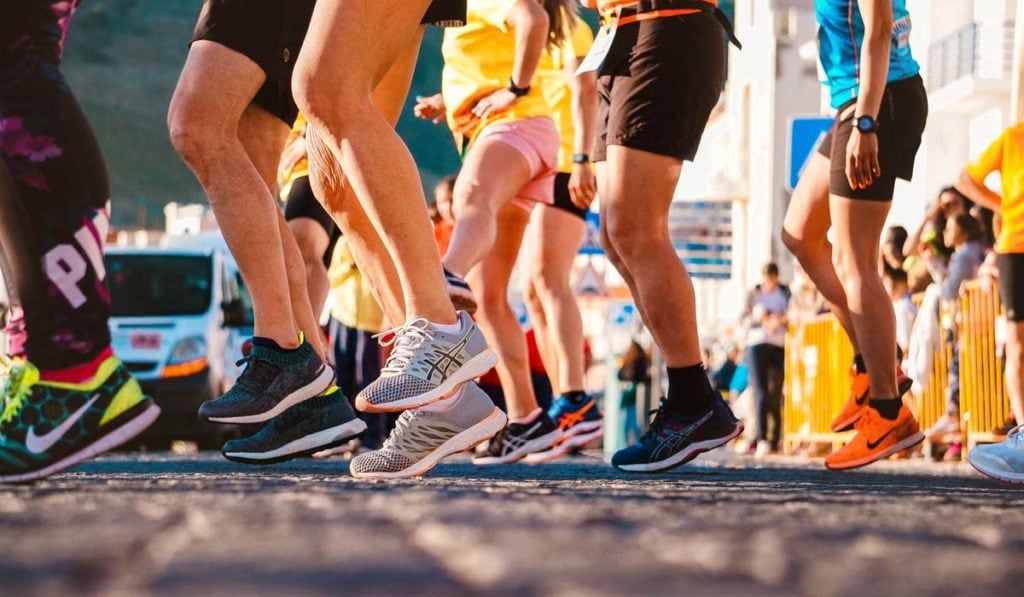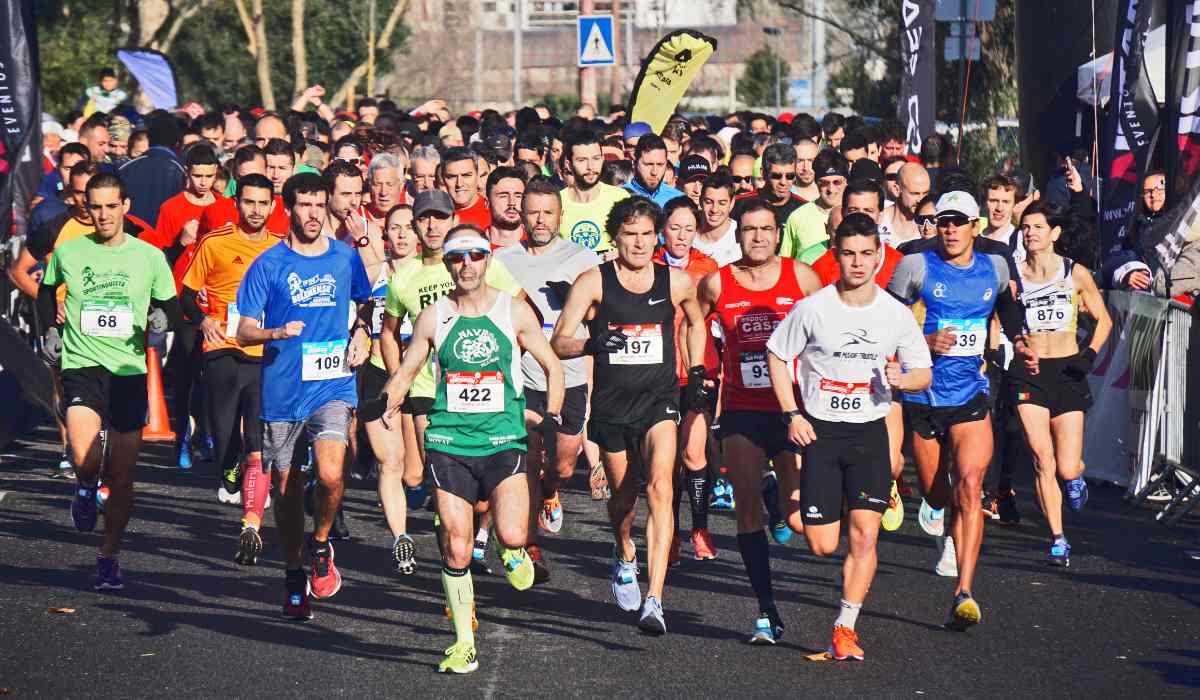
How to Recover After a Marathon
Running a marathon is no easy feat. After months of intense training and 26.2 miles of racing, your body will definitely require some recovery time. While resting isn’t easy for a dedicated runner, one of the biggest mistakes you can make is not taking enough time to recover. In this article, we’ll look at why it’s so important to rest and recover after a marathon, how long you should rest, and some tips to help you recover faster.
Why is it important to recover after running a marathon?
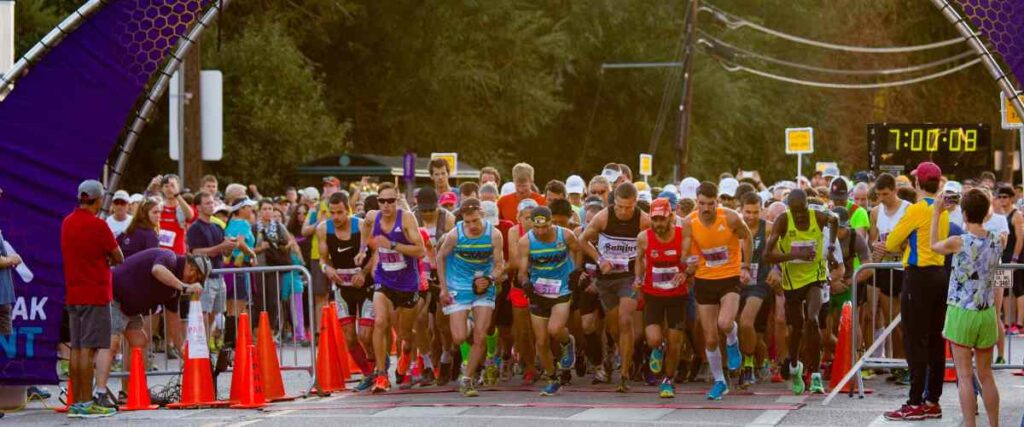
Not taking enough time to recover after running a marathon often leads to injuries and overtraining. When you run a marathon, your muscles develop tons of tiny tears that will require weeks to fully heal and repair themselves. Cellular damage also occurs, resulting in elevated myoglobin levels in the bloodstream (which indicates muscle trauma). If you return to your training routine too quickly, you’ll cause more muscular damage, making it harder for your body to repair itself and increasing your risk of injuries.
By taking adequate time to recover after a marathon, you’re giving your body the time it needs to heal from the muscle trauma and repair itself. This process doesn’t happen overnight so you’ll need to be patient. Regardless, you don’t have to be a complete couch potato to rest. It’s still okay to go for a light walk and do some gentle foam rolling and stretching the day after a marathon.
What happens to your body after running a marathon?

Immediately after a marathon, you’ll feel fatigued and your muscles will probably feel sore and tight. The aches and pains are a normal response to the trauma of running 26.2 miles. Your body’s energy stores may be depleted and you might also be a little dehydrated.
Your immune system is also highly compromised after a marathon, making it more likely that you’ll catch a cold or virus. If you’re worried about taking a little time off to recover from the race, just know that getting sick will definitely derail your training efforts even more. It’s okay (and healthy) to give your body time to heal.
All in all, even if you don’t feel like you need to rest after running a marathon, jumping right back into your normal training routine is likely to do more harm than good. Although it requires patience and commitment, taking time to recover is the best way to care for your body and ensure that you can pick up your training after completing a marathon.
How long does it take to recover after a marathon?
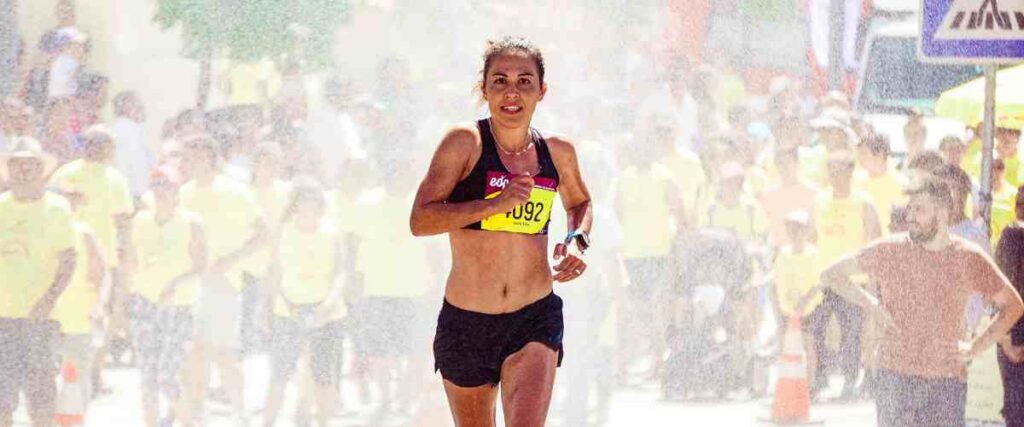
Most experienced runners recommend taking a week off to recover after a marathon. Even after taking a week off, your training routine during the two weeks following a marathon should be light, gradually increasing in intensity.1
During the first week after a marathon, focus on getting lots of active rest. For example, you might go for an easy walk or a brief jog (no more than 15 minutes) every other day to stay active but continue recovering from the damage done. Or, you could do a low-impact workout like yoga to remain active during your recovery week. It really just depends on your level of physical activity prior to the race and your body’s response to the marathon.
After the first week, you might start adding a few minutes onto your jog every other day until you’re back to running short and easy routes. If you can, try to wait a full month before you get back into your normal training routine. Studies show your body may actually need that long to fully recover from running a marathon.2
What should I do after a marathon to recover faster?
Naturally, you might feel a little impatient during the recovery process, and who can blame you? If you’re accustomed to running several miles a day, you might feel a little stir-crazy forcing yourself to rest.
Fortunately, there are several things you can do to help your body recover faster after a marathon.
On race day…
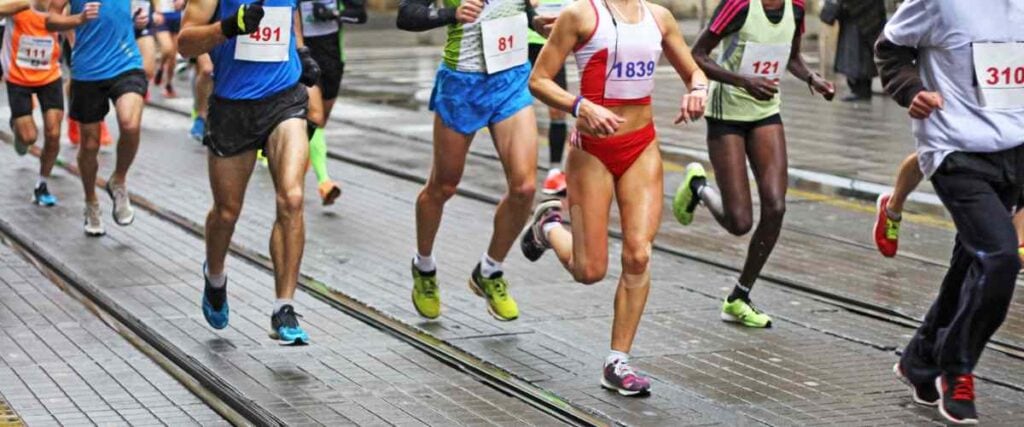
- After you cross the finish line, try to keep moving for 10 to 15 minutes. This will help promote blood flow around your body and gradually lower your heart rate and cortisol levels.
- If you plan to take an ice bath, take it immediately after the race.
- Eat a carb-rich snack or drink within an hour of the race’s end.
- Within 1 to 2 hours of the race, eat a well-balanced meal and make sure you stay hydrated. (Your urine should be a light yellow color.) Just make sure your victory meal isn’t too massive or heavy. Your body may not be capable of breaking down a large amount of food right after running a marathon.
- Avoid drinking alcohol until you’ve rehydrated and refueled with a balanced meal. Excessive alcohol consumption can dehydrate you further.
- Don’t hang out in your sweaty clothes. Take a shower, change, and get comfortable.
- Later in the day after the race, take a short nap if you can.
- Before you go to bed at night, drink something milk-based. The mix of carbs and protein is great for repairing muscle damage!
A few days after the race…

- Save the cooldown stretching for the day after the race. It’s best to wait until your muscles aren’t as inflamed and gradually ease your muscles into it.
- Try wearing compression socks or tights to boost your recovery.
- Avoid running but try out a form of active recovery, such as swimming, yoga, or walking.
- Schedule a sports massage for 3 to 4 days after the race. Many races offer a complimentary deep massage immediately afterward, but your muscles are completely broken down following a race, so a massage can hinder healing. If you must get a massage, a very light one is a better option and can help loosen your muscles.
- Take hot baths to increase circulation, dilate blood vessels, and enhance the healing process.
- Avoid hanging out with anyone who is sick. Your immune system will be compromised shortly after running a marathon so you’re more likely to get sick if you’re exposed.
One week after the race…
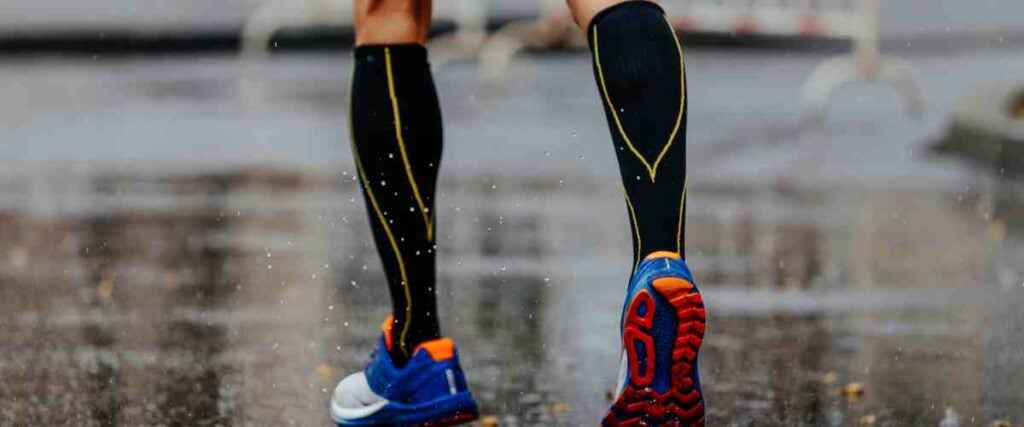
- Try out an easy 20 to 30-minute run. Don’t try to reach any specific performance goals. Instead, just take note of how your body feels and pay close attention to any pain or discomfort.
- If you feel like you need more time to rest, don’t be afraid to take more time off from running! Some runners take an entire month off before they jump back into training again. How much time you need to rest is completely up to you.
Key Takeaways:
For many runners, it takes a month to fully recover from a marathon. However, the ideal length of time is highly personalized and depends on your individual needs and factors. The best rule of thumb is just to take it slow and listen to your body. In the meantime, active recovery like swimming, walking, or yoga is a great way to keep moving while your body heals and recovers.Sources:
- Jeff, C. (2021, June 27). The Ideal Marathon Recovery Plan: Learning from Elite Runners. Runners Connect. https://runnersconnect.net/marathon-recovery-plan/
- Tsai, K., Hsu, T. G., Hsu, K. M., Cheng, H., Liu, T. Y., Hsu, C. F., & Kong, C. W. (2001). Oxidative DNA damage in human peripheral leukocytes induced by massive aerobic exercise. Free Radical Biology and Medicine, 31(11), 1465–1472. https://doi.org/10.1016/s0891-5849(01)00729-8



